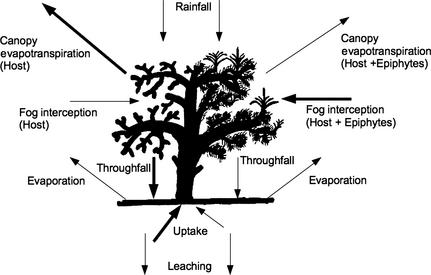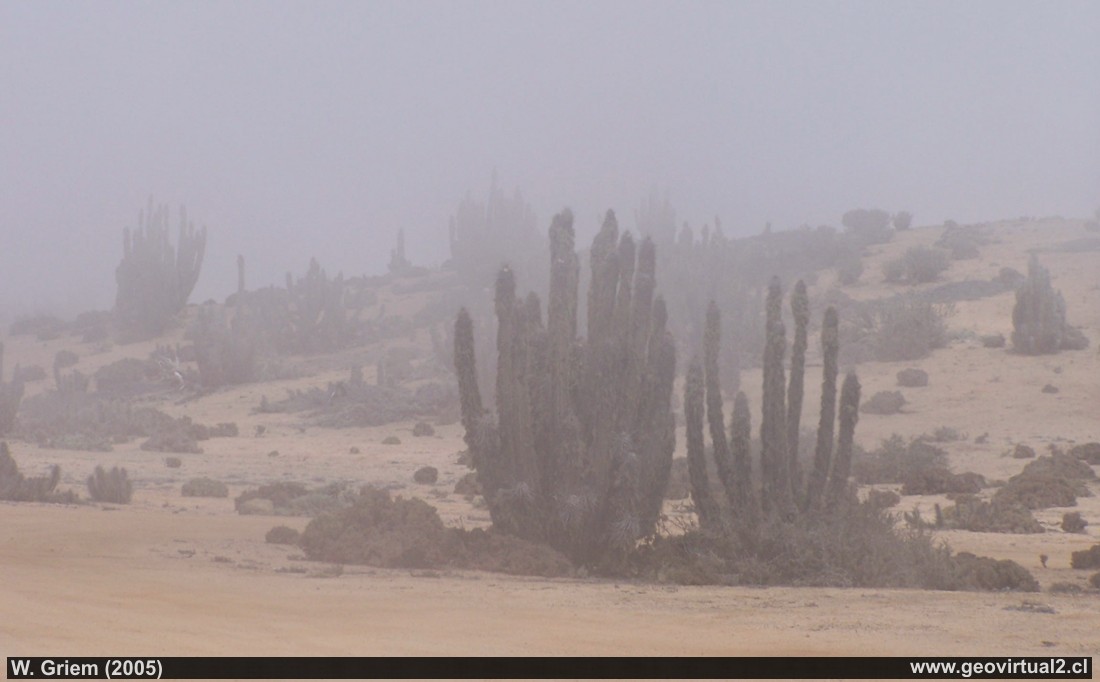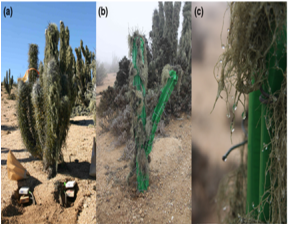These researchers investigated the impact of epiphytic lichens and Tillandsia species on their hosts in deserts of Chile and Peru. Plants in these deserts depend on fog for water input and the authors aimed to find out if the very large epiphyte communities in these areas affect ecosystem water cycling.
- Epiphytes reduced the volume of water from fog and rainfall that reached the soil beneath host plants.
- The soil beneath host plants lost more water when epiphytes were removed from the sunny side of the plant. This suggests that the epiphytes may shade the soil below them.
- Epiphytes buffered temperature fluctuations and increased humidity levels during the day.
The following schematic illustrates the range of possible influences that epiphytes have on an ecosystem water cycle - see caption for details.

"Experimental removal of epiphytes is logistically challenging; however, the considerable impacts on host plants we observed suggest that more such experiments, in other ecosystems, may be necessary in studies of forest hydrology. The conceptual framework we present establishes a context for evaluating the relative positive and negative effects of epiphytes on hosts and shows that epiphytes are likely to have significant effects on host plants and ecosystems. This consideration is important to the accurate modelling of climate–vegetation feedbacks and ecohydrology of ecosystems with large epiphyte communities"



 RSS Feed
RSS Feed
